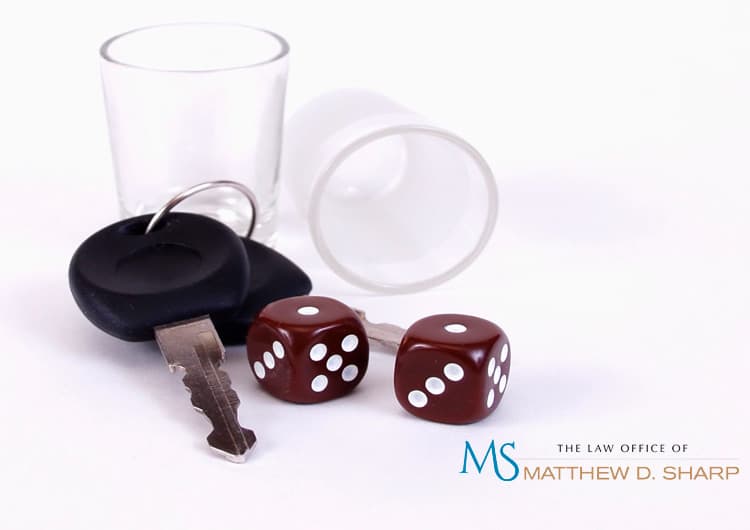The most successful strategies for beating a DWI charge
Have you been arrested for DWI in Texas?
If so, at this very moment prosecutors are preparing evidence to try you in court and support their case. Without a proper defense, it’s possible that you’ll lose your license, pay hefty fines or even face jail time. If this is your second or third offense, you could permanently lose your license and face jail time, depending on the circumstances.
When there is evidence to support a case against you, you need to hire a lawyer with the best DWI defense strategy who understands Texas law and can make a case to reduce or drop charges. Here at the Law Office of Matthew D. Sharp, we specialize in these types of cases.
So how do we do this?
How to beat a DWI in Texas
When arrested for a DWI in Texas, it means that you are an offender who has “driven under the influence” or “drove while intoxicated” in a public place. There are 2 meanings for intoxicated:
- You blew a blood alcohol concentration of .09 at the scene of the arrest
- You ingested alcohol or a drug that resulted in the loss of your normal physical or mental faculties
No probable cause for pulling over
In a normal traffic stop scenario, the officer must suspect that there is reasonable suspicion of violation. That means criminal activity is happening out in the open. The courts in Texas need a lower submission of probable cause in DWI cases, and they will defer to the law enforcement’s statement for reasonable suspicion.
Typically, the officer will say that you were pulled over for erratic driving, speeding, running a stop sign or swerving. These can all be used to justify pulling you over.
If an officer doesn’t have reasonable suspicion, any evidence collected against you must be thrown out. Many defenses are built upon disproving this reasonable suspicion and having a case dismissed.
However, if an officer did have reasonable suspicion, then he or she can’t detain you longer than the time necessary to issue you a ticket. This means that if you are pulled over for speeding, then he only has the time period required to issue the warning or ticket, unless there is cause that shows inexplicably you were intoxicated.
Warrants must also be administered to take a blood test. The warrant must be issued on probable cause that the officer found while you were in your vehicle. If there wasn’t any probable cause to pull you over or in the car at the time of issuing the ticket, then the warrant isn’t going to fly in court.
Some examples of reasonable suspicion pertaining to intoxication includes the following behaviors:
- Slurred speech
- Smelling alcohol while inside the vehicle
- Smelling alcohol on your breath
- Spotting an open container in the vehicle
- Red, bloodshot eyes
- Lack of motor coordination (frequently proven with a “walk the line” field sobriety test)
Challenging the results of the sobriety test
If there are signs of intoxication, the officer can then ask you to do a field sobriety test. This means that a BAC or breathalyzer test may be performed, or you may have to walk in a straight line, touch your nose, and other field sobriety tests. If you fail any of these, you can be placed under DWI arrest.
If you know that you haven’t been drinking, then taking the test could exonerate you from all wrongdoing. However, these field sobriety tests aren’t 100 percent accurate all of the time, and some can result in a false positive. Plus, if you have had anything to drink before getting into a vehicle, you may want to refuse this test and talk to a lawyer who can prove beyond a reasonable doubt that you were sober at the time. This is easier to do if you haven’t failed a field sobriety test.
| Should you refuse to take a field sobriety test?
It’s technically legal in Texas to decline breath, blood and field sobriety tests. You can decline a breathalyzer BAC test, and you don’t have to submit to any field tests. However, if you are still arrested without taking a test, you may lose your license for a period of 90 days to 2 years. |
Depending on what evidence has been gathered in your case, there may be some leeway to challenge the accuracy of DWI test results. There are many reasons why a breathalyzer can read incorrectly, such as a bad calibration. You may have an injury that prevents you from walking in a straight line. However, the biggest thing to remember is that these tests are human-administered and prone to flaws.
Talk to an experienced DWI attorney about the best defense
If you have been charged with a DWI in Texas, then you need to work with an attorney to clear your name and keep your driving license in good standing. In many cases, you can fight against probable cause and faulty test results to reduce or drop charges.





